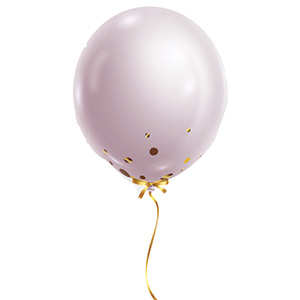Excising Our Holes
1.
He has dreamed of coming across one of the truly huge holes. One that would have to be folded eight or more times to fit into a hole detention box. A hole so large it has become lugubrious, that tends to stay put, that does not so much have to be chased as found. Hole wranglers can build their entire reputations on encountering just one such hole, but most never do. In defense, they argue that surface circumference is irrelevant, with holes being bottomless. That is the stance of the jealous. He is driven. And monster holes, he believes, know of him.
2.
Every wrangler has a favorite hole. It is usually one they have caught many times. They snare it, release it deep in the bog – then find it again snarling a city street, or practicing outside a store entrance. They trap it again, take it to a different swamp or mire, let it loose – then weeks later stumble into it again. The more heretical within the union say that some holes may develop an affinity for some wranglers. It is not a popular belief, but it is suspicious that some wranglers can snare the same hole interminably throughout an extended career.
3.
As an apprentice hole wrangler, he learned that success comes of two things: find and fold.
First, you need to find the hole. There is no chase, no bait and trap. You travel to where it is likely a hole will install itself, and survey. Holes are stretched between the poverty of staying hidden, and the wealth of being commonly available. Holes in areas where there is more to be snared are themselves more likely to be snared. But hidden holes have value, though they are harder to fold. Minding those edges in obscurity is an art requiring inedible heft.
4.
The names of those deficient in hole capture are written at the union meeting to a shame tablet. These members did not make quota. It is far too long a list for the union to make a case for greater municipal sponsorship. If town administration imagines a slacker assigned to municipal hole removal, they might imagine the outcome being more hours charged. But, if municipal authorities do not know how many members fall short, perhaps they will remain ignorantly satisfied. The name-taker unfolds a utility hole, splaying it across his desk, and sliding the tablet in. The members should learn.
5.
Sunday mornings hole wranglers gather at the coffee shop across from the Lutheran church. Or perhaps Methodist church. Or Episcopalian. It does not matter. The hole wranglers push several tables together, drinking over-priced coffee as the service across the street makes as much noise as it can. The hole wranglers talk shop like teenage boys recounting their imaginary sexual successes. They watch the coffee house clock, knowing exactly when the religious service should end. Before that hour, they settle, line the sidewalk in front of the shop as church patrons file out and away. And, behind those, the magnificent holes!
6.
It is important that we do not let them learn from each other. Holes going about their individual wont are trouble enough, but some holes have discovered they can band together – they can, rather than be two or three close but separate holes, collapse into one large hole. With size, they can absorb more, grow too large to be conveniently corralled by independent hole wranglers. If they share the knowledge, we could be confronted with massive collective holes that require dozens of hands to fold, that must be dragged away with machinery. Instead of a nuisance, they could become adversaries.
7.
Always there are stories of wranglers who took on holes too large and, abusing gravity, fell in. Or who with a modest but irregular hole misjudged an edge, toppled over. There are likely holes about with more than one hole wrangler lodged deep in its vacuum. Small holes are so easy to capture that, as a wrangler works his way to more exotic or otiose holes, they fail to upgrade their analyses to meet new difficulties. No one has ever come back from a hole to post warnings. But, if some did, it would only make novices more hopelessly reckless.
8.
He does not understand why emblazoned above the entrance to the hole wranglers' union hall is "Until There Are No More Holes." Capturing holes for him and his union compatriots so far has provided a good living. The process has been working well for everyone: when an unnecessary hole is discovered, the responsible party calls the bureau, the bureau notifies the union, and the next available hole wrangler is dispatched. In a dearth of holes, nothing moves forward. When he is senior enough in the union, he will be briefed on hole recycling. That is when the conundrum pleasantly unravels.
9.
It is a holers' bar. You would not go in unless you had already bagged a full clutch of holes, had a share of close calls to brag about, lost a friend or two to the darkness that was a particularly unmanageable hole. Novices try to sneak in, bolster their status by snagging a bar-stool – but the seasoned can tell, and out in a heap they go. On the walls, pictures of legendary hole wranglers with almost imaginary holes folded and slammed into detention chambers, hang at boastful angles. Yet, in the corner, lurks a useful hole where empties go.
The latest of Ken Poyner’s twelve collections of poetry and flash fiction is Science Is Not Enough, speculative poetry. He lives in the lower right-hand corner of Virginia, and is married to a world champion female power lifter. He spent 33 years herding computers. See him in Analog, Asimov’s, Café Irreal, Blue Unicorn and another hundred or so places. www.kpoyner.com. His stories have appeared in The Cafe Irreal thirteen times previously, most recently "Four Drabbles" in Issue #91.

